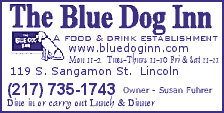 In a story that you
won't find on the official NASCAR site, stock car racing got its
start with bootleggers running moonshine whiskey in the 1920s and
early '30s. During Prohibition in the South, bootleggers would haul
their moonshine from their homemade stills to customers at night
with their cars' lights turned off to avoid detection by the law. To
avoid being stopped when the police spotted them, the bootleggers
modified their cars in order to outrun the police. In a story that you
won't find on the official NASCAR site, stock car racing got its
start with bootleggers running moonshine whiskey in the 1920s and
early '30s. During Prohibition in the South, bootleggers would haul
their moonshine from their homemade stills to customers at night
with their cars' lights turned off to avoid detection by the law. To
avoid being stopped when the police spotted them, the bootleggers
modified their cars in order to outrun the police.
Eventually the bootleggers wanted something more challenging than
outrunning the law, so they began racing each other with their
souped-up engines. They would haul moonshine Sunday night in the
same cars that they raced on Sunday afternoons. A new sport was
born.

After Prohibition ended in 1933, the government placed heavy
taxes on liquor sales, so bootlegging showed no signs of ending. The
fact that there are dry counties in the South reminds me of the
summer I spent in Florence, Ala., in 1987. On the way to work each
morning, I drove past a liquor store near the county line where the
sign out front revealed the store's name as "Last Chance Liquors"
because it was the last chance to buy alcohol before entering a dry
county. Driving back into the wet county each night, I'd notice that
the other side of the sign referred to that same liquor store as
"First Chance Liquors."
"Gentlemen, start your engines!"
There are probably some NASCAR fans who think that these words
are the last four words of the national anthem. NASCAR, which stands
for National Association for Stock Car Auto Racing, has become the
fastest growing spectator sport in the country. Its modern roots go
all the way back to 1938 when Bill France Sr. organized a race at
Daytona Beach, Fla. France was one of NASCAR's first racers before
it became NASCAR, and some of the sport's earliest racers were
veterans of the bootlegging circuit.
[to top of second column] |

The sport grew in popularity, but racing came to a screeching
halt during World War II. After the war, Bill France realized that
the sport needed some organization to it, with its own set of rules,
regulations and records. He brought promoters to Daytona Beach to
organize the governing body of auto racing. NASCAR had begun.
The first NASCAR race was run in Charlotte, N.C., in June of
1949. The winner of that race was Glenn Dunnaway in a '47 Ford.
Dunnaway was disqualified, though, when inspectors found an illegal
part in his car's shock absorbers. The illegal part was often used
to make bootlegging cars go faster, as the car had been used for
bootlegging earlier that week.
Auto racing led to the development of an important invention that
we all use every day -- the rearview mirror. In the early days of
racing, racers had a passenger riding shotgun to let them know where
the other cars were behind them. The added weight slowed the cars
down a bit, but the rearview mirror solved this problem.
In a bit of irony to this story, NASCAR, the sport whose earliest
participants got their start running moonshine whiskey, prohibited
liquor companies from advertising hard liquor on the race cars or to
sponsor NASCAR races.
[Text from file received
from Paul Niemann]
Paul Niemann may be reached at
niemann7@aol.com.
Copyright Paul Niemann 2007
(Other
columns)
 |